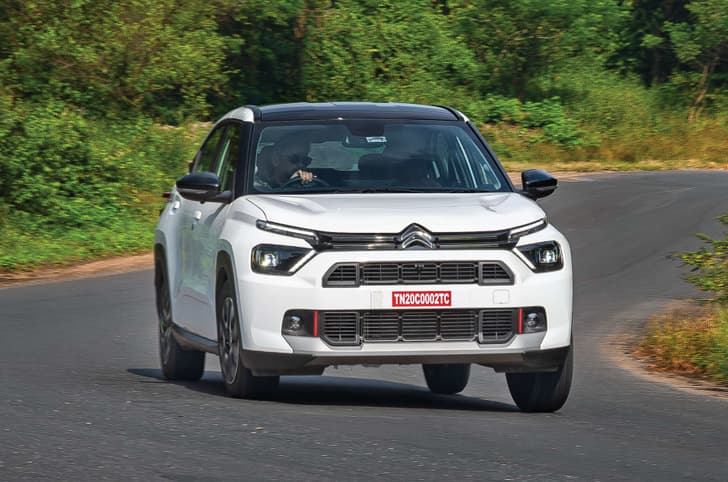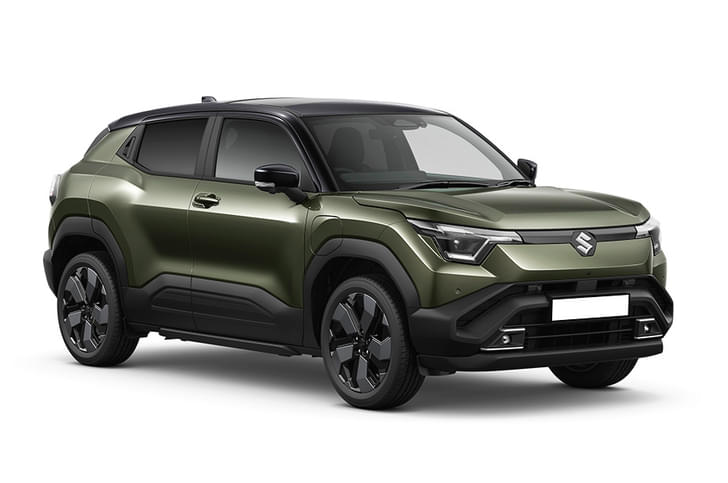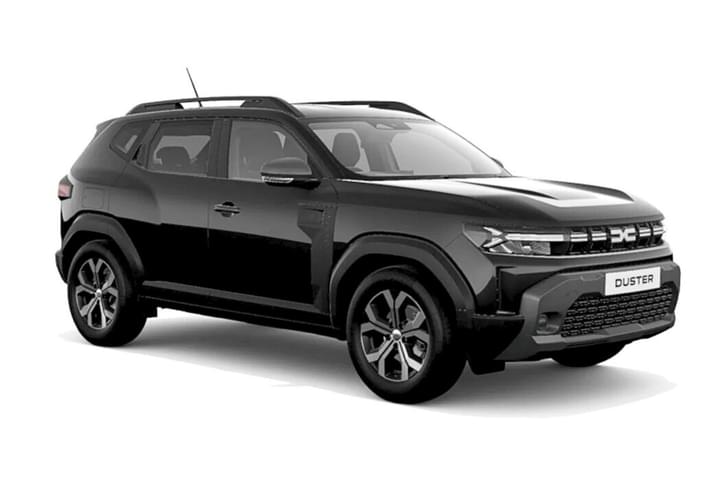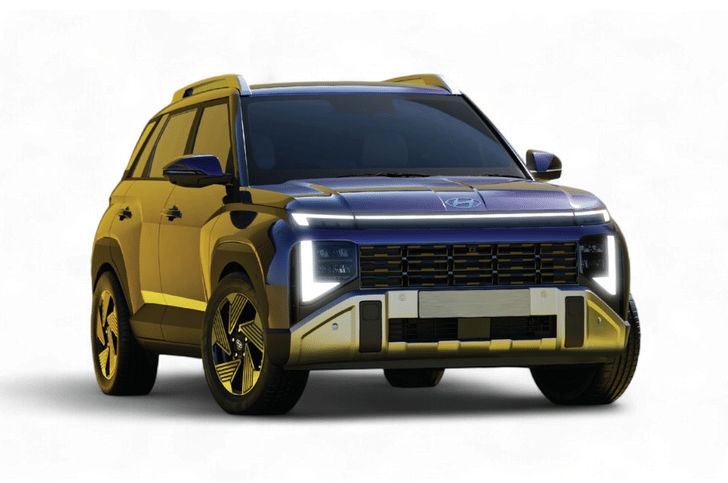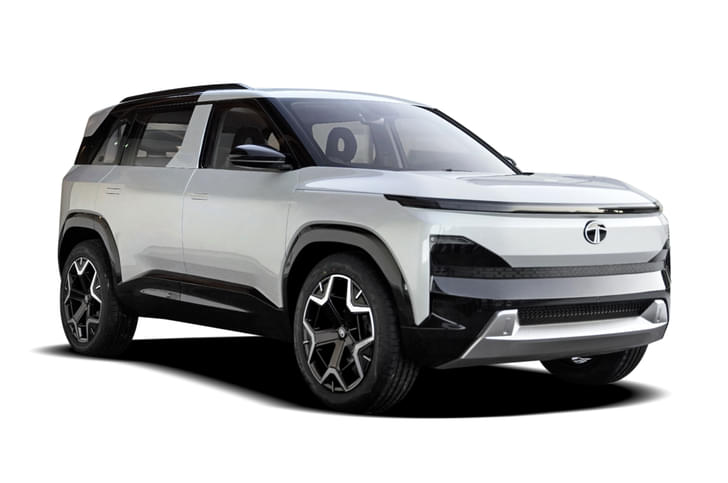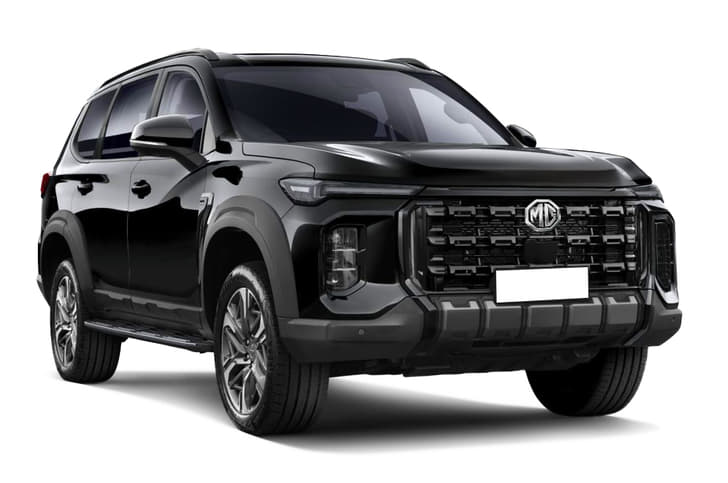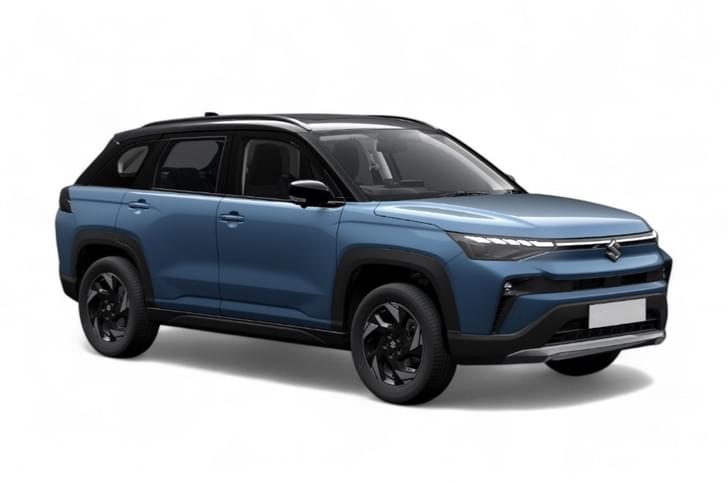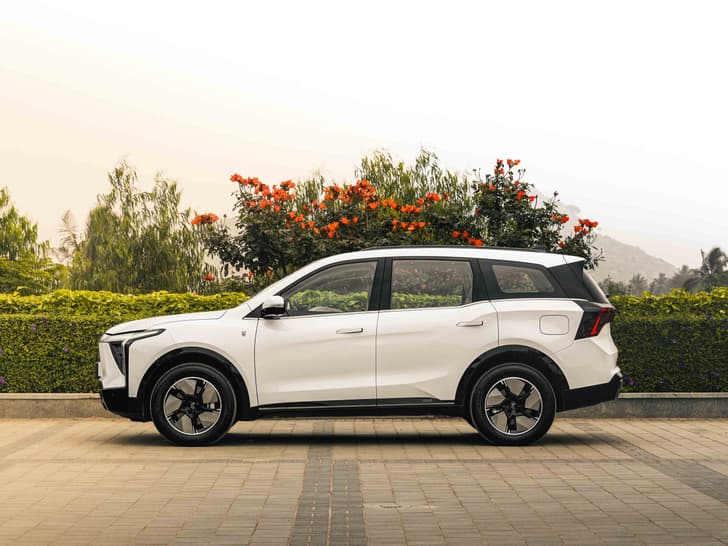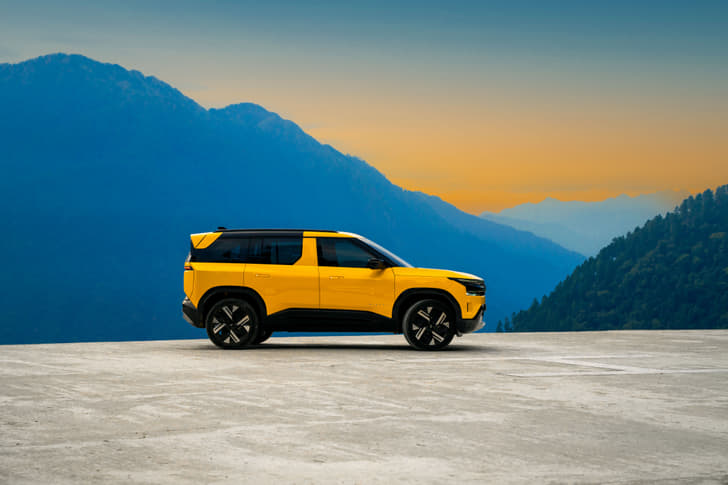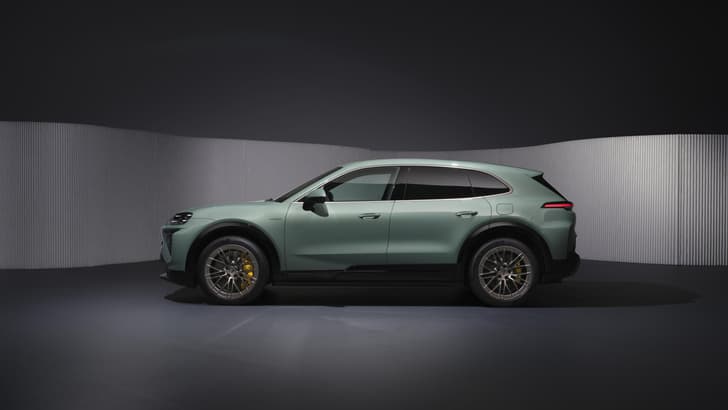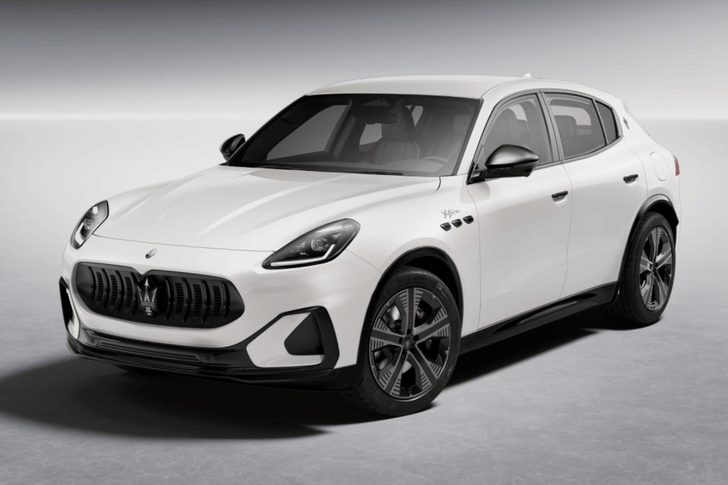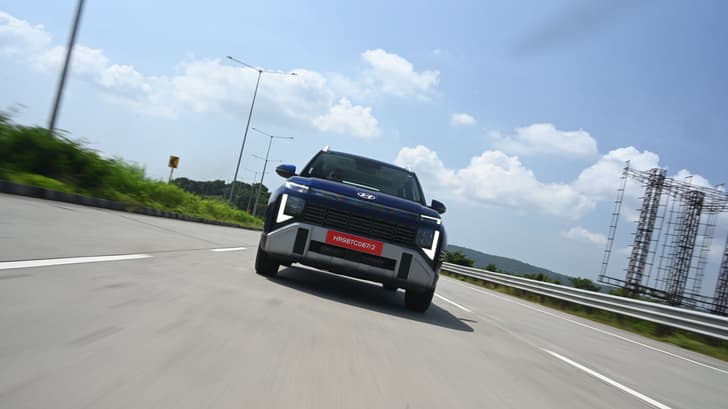Volvo has found considerable success with its Cross Country (CC) models in India. First, there was the V40 Cross Country which continues to move decent numbers. Then the company brought in the S60 Cross Country, uncertain of how the market would receive a rugged, off-road-friendly family sedan. It turns out that the S60 Cross Country is a hit, massively outselling its traditional sibling. The logical next step was to see if the Cross Country formula could work its magic on the new 90 series of cars. Since Volvo doesn't make an S90 Cross Country sedan, the decision was made to bring its wagon-style sibling, the V90 Cross Country here instead. Should you be considering a vehicle in this body-style as an alternative to the typical luxury sedan or SUV? Read on.
What is it?
The V90 is the latest car from Volvo internationally and is an attractive wagon-style version of the new S90 sedan. The face and body section up to the rear doors is more or less identical to the S90. However, the V90 makes a departure from the traditional, boxy estates of the past and has a sleek profile that culminates in a sloping rear windscreen. A striking version of the signature Volvo tail lamp cluster makes for a handsome and dynamic look. For the Cross Country, Volvo has toughened the design with some mild bumper cladding while standard 20-inch wheels fill out the large wheel arches nicely. But it’s not all looks. Volvo has raised the car by 60mm, giving it an SUV-rivalling 210mm of ground clearance. All-wheel drive is standard and like the S90, there’s adaptive air suspension at the rear. The estate shape has not done well in India so far, but the V90 Cross Country presents one of the prettiest forms of this body style we’ve seen to date on a mainstream car.
What’s it like on the inside?
Just lovely. The cabin is based on the S90 sedan, which in turn was based on the path-breaking new XC90. The dashboard has the same minimal theme with a large 9-inch touchscreen replacing most physical buttons, including aircon controls. The tall, slim aircon vents on the side of the screen complete the look but sacrifice no functionality. The V90 CC differs from its sibling by trading the veneer inserts on the dash and doors for lovely woven aluminium panels. The shade of tan leather in our car is Volvo’s most popular choice, but shows dirt quite easily. There are two more colour options on offer.
The front seats are similar to the S90’s – heated and superbly supportive and with electric adjust for the bolsters, lumbar support and extendable squabs. But the V90 takes it a step further with a cooling function and an enjoyably effective massage feature that offers three modes and adjustable speed and intensity. There’s also a heated steering wheel. The rear seats in comparison are comfortable but on the firm side and come with none of the adjustability of the front. The new roofline means better headroom than the S90 and knee room remains the same. Thigh support is low and extendable squabs would have helped. Additionally, the footwell under the front seats is a little tighter than we’d have liked. Space at the back is good for two, but the middle passenger will be hampered by one of the largest transmission tunnels we’ve seen in quite a while. The rear seats offer a built-in jump seat option for small children and can electrically release to liberate further luggage space. But you’d rarely find the requirement, with the wagon body liberating a huge 560 litres of wide and flat stowage space. Should the need arise, the seats can be dropped to increase that number to 1,526 litres, enough for all your kitchen sinks. Recessed under the boot is a space saver spare tyre.
Volvo has made it a point to offer its cars in one, highly packed variant. The V90 CC is packed to the rafters with kit, including a panoramic sunroof, a sensational 19 speakers, 1,400 watt Bowers and Wilkins sound system, an electric tailgate, a head-up display, four-zone climate control and real leather to name a few. This is also one of the first new Volvos since the S60 Polestar to offer paddle shifters. The excellent full-LED headlights, with an active high beam and a bending function that instantly follows your steering inputs deserve special mention.
What’s it like to drive?
The V90 CC is the second Volvo after the XC90 to get the new D5 engine. This motor produces 235hp and 480Nm, making it one of the most powerful 2-litre diesels available in India. These numbers are significantly higher than the 190hp/400Nm from the D4 diesel in the S90. The motor is smooth and quite refined from within the cabin. Power delivery is thoroughly linear with no sudden surges in the power band. Power builds till just over 4,000rpm, after which the engine starts to get quite noisy. The 4,900rpm redline will remain rarely visited.
The D5 benefits from Volvo’s PowerPulse technology that shoots compressed air into the turbo to spool it up quicker when the driver demands sudden acceleration from low revs. This system stores air in a canister and helps the turbo spool up quicker and works towards eradicating one of the bugbears of a diesel engine – turbo lag. The canister is constantly topped up to ensure continual operation of the system. In practice, it has helped reduce the effects of lag and the surge of power begins to arrive from just below 1,500rpm. It does well to restrain the effects of lag, but it’s not a magic silver bullet. Put your foot down at low revs, especially on inclines and you still feel the pause before the engine starts to pull convincingly.
The V90 CC uses an 8-speed automatic just like its S and XC siblings. The gearbox offers smooth and near seamless shifts in normal driving conditions, but is a bit slow to downshift when driven aggressively. There is no Sport mode for the gearbox to remedy this, so the best solution for spirited driving is to use manual mode through the paddle shifters. There are four driving modes – Eco, Comfort, Off-road and Dynamic. Eco dulls engine response a bit and slightly softens the steering. Comfort finds a middle ground while Dynamic offers heavier steering and sharper engine response. Dynamic also firms up the suspension a bit, but the overall differences between the modes are subtle.
We managed to take the V90 CC off road up some broken muddy tracks through a coffee estate and the car impressed. Engaging Off-road mode sends more power to the rear wheels as required, effects a small rise in ground clearance and engages hill-descent control. The system works upto about 40kmph before defaulting to Comfort mode. Ground clearance was sufficient to deal with fairly deeply rutted tracks without scraping, even with five passengers on board. The all-wheel drive and brake-type torque vectoring system work in unison to find traction efficiently and pull the car up some steep tracks. The sporty Pirellis did struggle to find grip in wet mud, but overall off-road ability is comparable with something like an Audi Q5. We don't see potential owners requiring more off-road capability from a car like this.
The handling characteristic meets Volvo’s new ‘relaxed confidence’ approach well. While rivals focus on a sportier experience, Volvo aims more at comfort, confidence and capability. Even in Dynamic mode, the V90 feels a bit soft and body roll is evident, although not to off-putting levels. Grip from the all-wheel drive system is enormous, further aided by the interesting choice of a Pirelli P Zero tyre. We’d have expected a less sporty tyre for this application, but Volvo says it is specially designed for this application with a softer, more rounded profile. However, given the large wheel and rather low profile, durability on poor roads might be an area of concern. The 20-inchers are the only option on the Inscription trim cars at launch, but Volvo will offer smaller wheels as an accessory.
Flowing the big V90 up the winding road to Madikere was fun, if not deeply involving. The car offers brisk and capable performance with fantastic stability, but it’s not particularly sporty and engaging. The positive of this suspension setup is that the ride quality is excellent. On smooth roads, the V90 floats along with a wonderfully isolated feel. Small to medium bumps are soaked up almost completely and it’s only the deeper potholes that cause a thud if met with speed. The rear feels a touch firmer than the front, but overall suspension comfort is at a high level.
Should I buy one?
The V90 Cross Country will go on sale shortly and we expect a price ranging between Rs 60 lakh and Rs 65 lakh. What that gives you over the S90 sedan is the more powerful engine, all-wheel drive and additional interior kit like the cooling and massage functions for the seats among other things. It also offers a car-like feel within the cabin yet an ability to handle the worst of our roads can offer. Safety is given full priority, of course, with a raft of features including radar-assisted systems like Pilot Assist, Lane Keeping Aid (only works on clearly marked roads) and Front Collision Mitigation Support. There’s also a parking assist, adaptive cruise control, hill start assist and hill descent control.
The V90 CC opens a new niche in the market and Volvo isn’t sure if it will attract more sedan buyers or SUV buyers. We suspect it will be the former as the V90 CC doesn’t offer the commanding presence that SUV buyers love. Volvo has played follow-up in the Indian market since its inception but the V90 is its first product which opens up a new category. Volvo is keen to have potential customers drive its latest offering. It believes that once customers experience and understand the car, it should be able to achieve its target of 200 cars this calendar year. But we can already tell you, the V90 Cross Country is a convincing package and should definitely be on our radar if you’re considering a car or an SUV at this price point.






